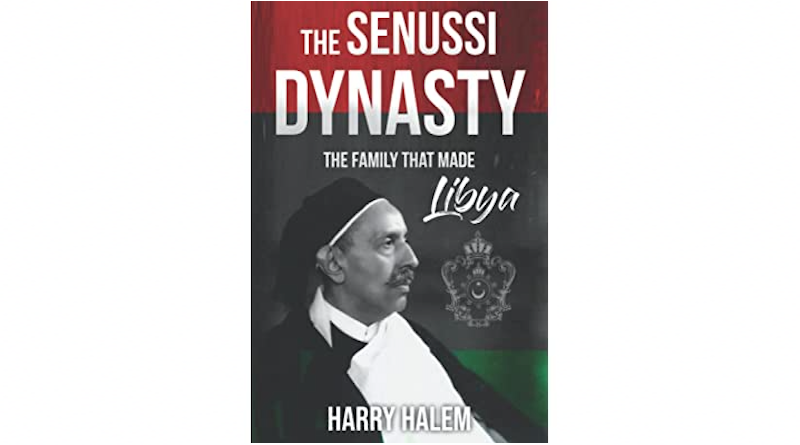
In a new piece of historical thought leadership political analyst and naval strategist Harry Halem reminds readers of the role which the Senussi dynasty played in shaping the Libyan state we know today
As the Taliban swept into Kabul airport, an air of disbelief still hung over international media organisations. After two decades and hundreds of thousands of Afghan lives – and thousands of Western lives – spent stabilising the country, the same savage fanatics had retaken power. But while Afghanistan may have been more tragic than other Middle Eastern states, it simply constituted the clearest case of Western failure. Iraq may have neither Saddam nor al-Qaeda in power. Yet it is ruled as an Iranian proxy. Lebanon remains on the brink of social breakdown. The Assad regime controls Syria with Iranian and Russian support. The West can do next to nothing to impact any one of these states, nothing to provide their people with a modicum of sanity and a reprieve from brutality and dictatorial violence. Indeed, after 22 years of effort, the Middle East seems hopeless.
Is there an alternative to the cycle of Western occupation, social breakdown, kleptocracy, and jihadism? Ironically enough, the West must look farther west to find it. Not to Europe or the Americas, with their unique historical and religious-political experiences that create a unique type of stable, market-based representative government. Rather, Libya may provide an opportunity to set things right – to demonstrate that we need not choose between neocolonialism and apocalyptic theocracy.
Mr Halem’s text, The Senussi Dynasty: The Family that Made Libya, makes a compelling case that the Middle East’s future may actually be found in North Africa. Of course, his text is historical, not policy-political in orientation. Nevertheless, his narrative of the Senussi’s role in Libyan politics and history has obvious political relevance, acknowledged far more obliquely than the logic of his argument implies.
The Senussi, as Mr Halem explains, are crucial to the creation of the Libyan state and inextricable from any understanding of Libyan national identity. The country was literally lawless before the arrival of the Senussi. Too far from Ottoman power for the decaying central state to control, yet too strategically relevant to be undeveloped, Libya became a hotbed for pirates and slave-traders, dominated by savage rulers who carved out bloody fiefdoms, and lost them to political intrigue or simple banditry. The Senussi transformed the situation. They policed the roads throughout Libya, prevented roving marauders from destroying Libyan homes and livelihoods, enabled actual commerce, and began to educate the Libyan people. It is this last point that Western observers are most likely to miss. Libyan Islam in the 19th century was deeply heterodox, an outgrowth of Libya’s general disorder. The education and stability the Senussi provided allowed for Islamic practice to be regularised, decreasing violence. Successive Senussi leaders, beginning with Mohammed ibn Ali, then Mohammed al-Mahdi and Ahmed Sharif, followed the Senussi mission with remarkable consistency.
However, the Senussi neither claimed a formal leadership mantle, nor established an “Islamic state”. Their purpose, rather, was to lay the foundation for a robust society that could withstand external pressures. The future of the Senussi, from the mid 19th century onwards, was destined to be violent, as the Senussi fought multiple colonial powers, culminating in a struggle against a genocidal Italian fascist regime. We may identify echoes of heroic Ukrainian resistance in the tale of Senussi defiance: like the Ukrainians, the Senussi rallied the Libyan people to fight against overwhelming odds.
Moreover, per Mr Halem’s compelling analysis, the Senussi under Idris, Libya’s first and only king, provided Libya with a reasonable political foundation. As always historical contingency imposes itself on the best of trends. If Mussolini had not come to power, a multi-ethnic, multi-religious Libyan state may have emerged in the 1920s. If the Arab Nationalist virus had not exploded in the Middle East, the Libyan people may have had a chance to exercise their democratic rights. Indeed, this was the explicit objective King Idris, and his designated heir, Crown Prince Hassan, had for Libya’s future. In the event, Libya was consumed by that particularly potent Arab variant of fascism.
A thorough lack of historical-political luck has defined Libyan development. Yet the country now has an opportunity to choose a different path. The Second Civil War is over and the major players do seem willing to come to an agreement. The House of Senussi evidently embodies the very idea of the Libyan nation. The Senussi must therefore be considered in any durable, legitimate peace settlement: after all, Libya’s Senussi constitution actually provides a way forward for the country.
Success in Libya would demonstrate to the Middle East that an Arab people can, despite an experience of extreme violence and economic degradation, actually control its own destiny and embrace a political system fit for its character and history. Contingency governs all despite our best-laid plans. Mr Halem has provided the intellectual argument for Senussi legitimacy. It must be operationalised, and the Senussi enlisted in constructing a future Libya. Observers should be wary of proceeding without the Libyan Ruling House. There is only one remaining opportunity to construct a durable Libyan peace. If it fails once again, the Middle East will have no demonstrable example of a nation that has exited the cycle of political violence.
